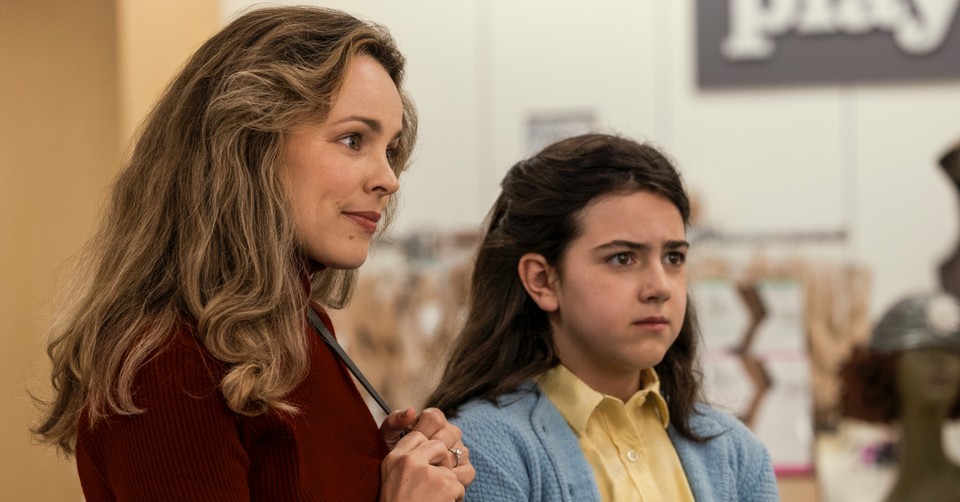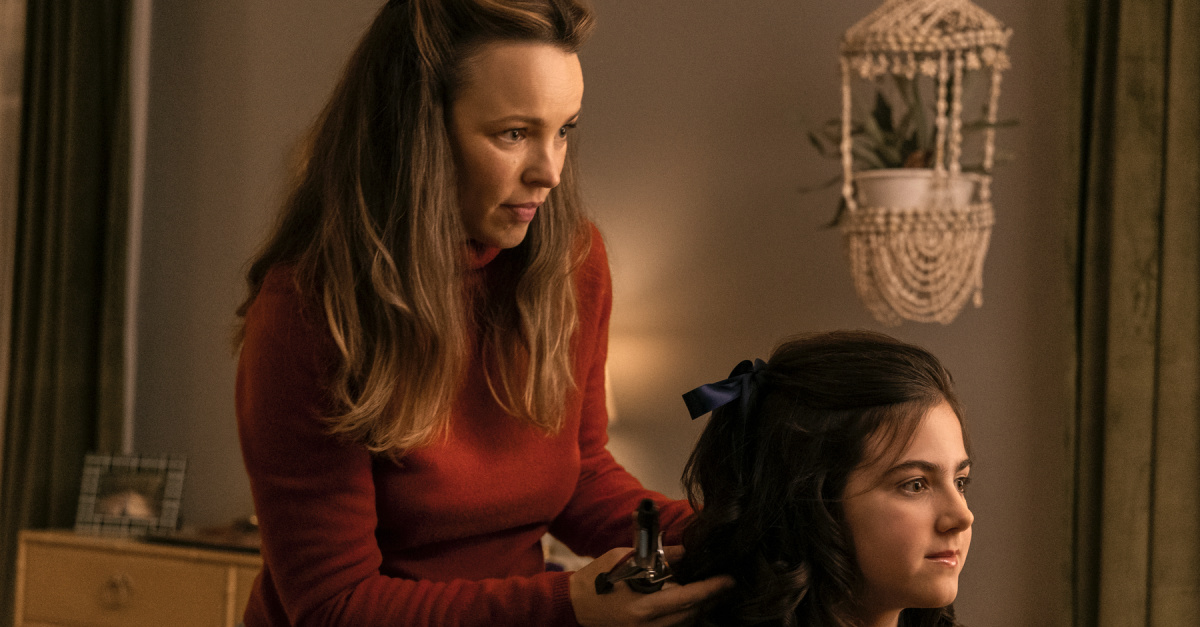3 Things You Should Know about Are You There God? It’s Me, Margaret

Margaret is a sixth-grade student who is similar to other girls her age. She enjoys hanging out with friends. She enjoys hanging out with her grandmother. She also likes boys. A lot.
But there is one area where Margaret is unlike many other girls. Puberty.
Margaret wants to look more like a woman. She wants to feel like a woman. She wants to purchase all the things that come along with womanhood, too, including bras and hygiene products.
So Margaret prays to God. She asks Him to change her. She asks Him to speed up her growth.
Will her prayers be answered?
The new film Are You There God? It's Me, Margaret follows the story of Margaret, her friend Nancy, and their classmates. It stars Abby Ryder Fortson as Margaret, Rachel McAdams as her mother and Kathy Bates as her grandmother.
Here are three things you should know:
Photo courtesy: ©Lionsgate, used with permission.

1. It's Based on a Bestselling Book
Are You There God? It's Me, Margaret by author Judy Blume was published in 1970 and tells the story of a middle-school girl and her friends who are going through puberty. Although some of Margaret's friends have gotten their first period and begun developing, she has not -- a fact that forms the basis of the plot. The book's other angle involves Margaret's confusion about religion. Her mother was raised Christian, while her father is Jewish. (Extended family opposed the marriage.) Blume's book was banned in some locations in the 1970s, including at the school where Blume's children attended.
The book was partially based on Blume's childhood. Her parents were Jewish but secular. For one year during her childhood, Blume's father, a dentist, lived in New Jersey while Blume and the rest of the family lived in Florida.
"When I was separated from my beloved father is when I started talking to God," Blume told NPR. "I believed that it was up to me to protect him. I had to keep him safe. … And so I would make all kinds of bargains with God."
Photo courtesy: ©Lionsgate, used with permission.

2. It's About Female Puberty and Religion
Set in the 1970s, the film opens with a distraught Margaret learning that her parents are moving from New York City to New Jersey. That's good for her dad – he has a new job – but bad for Margaret, who was tight with her NYC-based grandma. But things quickly take a turn for the better at her new home when an outgoing and outspoken girl her age – Nancy – invites her over to swim. The conversation, though, quickly turns to the female anatomy. ("You're still flat," Nancy tells her.)
Nancy forms an all-girls club – the "no socks club" – that has its own female-centric rules. (Among them: you have to wear a bra, you have to tell the others when you have your first period, and you have to spill the beans about your favorite boy crush.) Wanting to expedite their hormonal growth, they even perform exercises. (Nancy leads them in a chant of, "I must, I must, I must increase my bust.) Unfortunately for Margaret, she's seemingly in last place in the puberty club. (Although, as she later learns, one of the girls isn't truthful about her first period.)
Margaret's confusion about religion only adds to her stress. (Her parents, not very religious, had agreed to let her decide.) Her teacher even encourages her to write a paper on the subject.
Eventually, she dabbles in religion by visiting her grandmother's Jewish service and her classmate's Christian church. But with her parents split down the middle – and her grandparents, too – she is unable to decide. And after her grandparents get into an argument over religion, she writes in her paper: "What I learned about religion is that it makes people fight. And every religion says the same thing." She even wonders if "there's nobody up there."
For a few moments, we are led to believe Margaret will abandon her quest for God. Fortunately, the movie ends with a moment of hope.
Photo courtesy: ©Lionsgate, used with permission.

3. It Avoids 21st-Century Controversies
Unlike a handful of other modern-day adaptations of other books, the film doesn't "update" its plot with modern-day controversies. Margaret and her friends don't discuss transgenderism. They don't talk about same-sex attraction. They like boys – and only boys. (Margaret's crush is named "Moose.”) The film has a sweet and innocent childlike feel that is missing in most modern films.
Prayer is celebrated in the film, even if Margaret isn't certain about religion. Margaret teaches us a lesson about the simplicity of prayer. She also teaches us about the frequency of prayer. (I counted at least 10 prayers.)
But that doesn't mean the film is fully family-friendly. Discussion of the female anatomy fills the movie. In one scene, the girls look at a Playboy magazine. (We hear descriptions but don't see anything.) In another scene, they discuss how a classmate let a boy "feel her up." We see a boy briefly kiss a girl in a closet. We also see the girls stare at a drawing of the male anatomy. (We see the drawing.)
Even so, there's a lot to like about the film. It's fun. It's hilarious. (Elle Graham, who portrays Nancy, is perfect for the role.) The film takes you back to the awkward days of adolescence. It also makes you want to practice grace with the kids in your community who are in that stage. Margaret's parents obviously love one another.
The film is not perfect, but we need more movies like it.
Rated PG-13 for thematic material involving sexual education and some suggestive material. Coarse language: OMG (5), single misuse of "God" (2), GD (1), h-ll (1).
Entertainment rating: 4 out of 5 stars.
Family-friendly rating: 3.5 out of 5 stars.
Photo courtesy: ©Lionsgate, used with permission.
Michael Foust has covered the intersection of faith and news for 20 years. His stories have appeared in Baptist Press, Christianity Today, The Christian Post, the Leaf-Chronicle, the Toronto Star and the Knoxville News-Sentinel.
Listen to Michael's Podcast! He is the host of Crosswalk Talk, a podcast where he talks with Christian movie stars, musicians, directors, and more. Hear how famous Christian figures keep their faith a priority in Hollywood and discover the best Christian movies, books, television, and other entertainment. You can find Crosswalk Talk on LifeAudio.com, or subscribe on Apple or Spotify so you never miss an interview that will be sure to encourage your faith.
Originally published April 28, 2023.




